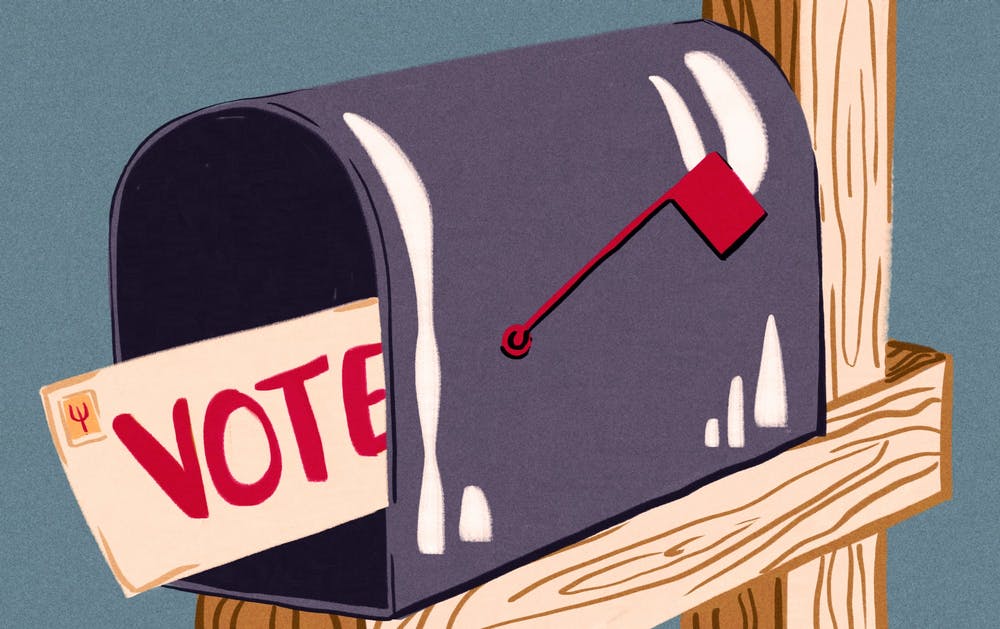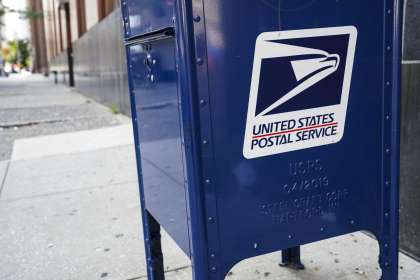University of Wisconsin sociology graduate student Benny Witkovsky spoke on the power local government in small cities has in influencing state and federal elections Tuesday night as a part of the Wisconsin Idea lecture series.
Witkovsky began by describing the political climate of Wisconsin when he was growing up in the 1990s. Witkovsky said that during this time, Wisconsin was a purple state, with moderate politicians and voters.
In the early 2000s, a shift came with the election of former Gov. Scott Walker and Sen. Ron Johnson. Witkovsky said both of these politicians presented as outsider candidates who thought the government was corrupt and wanted to run the state like a business.
In 2016 Donald Trump used this same tactic and won Wisconsin. Conflict in local politics was a big reason for this shift to more extremist candidates was conflict in local politics, Witkovsky said.
“This local experience just furthers people’s beliefs that the system is broken, but I think it does it in a more personal way and a more painful way than a lot of our experiences with state or national politics, I think many of us … expect national politics to be broken, they expect state politics to be broken but they don’t expect their neighbors, they don’t expect their city council to ignore their needs,” Witkovsky said. “People have really negative experiences with local government and that experience poisons their perspectives on all government.”
Witkovsky said these negative experiences cause people to view the government system as broken and see the only solution as electing candidates who will change the system.
Candidates like Trump and Walker capitalized on this distrust in the government by spreading messages that resonate with frustrations over local inequality, Witkovsky said.
Witkovsky said this frustration with local government is valid, as he performed a case study in a small Wisconsin city where he found that citizens living in working-class neighborhoods historically had less representation on the city council.
This lack of representation furthers a feeling of distrust in the government, making locals resistant to government intervention, Witkovsky said.
“It is this kind of perspective that government is broken, that politicians can’t be trusted that kind of really undermines the ability of government to prove itself to people,” Witkovsky said. “Why wouldn’t you think that the system is corrupt, that the system is broken because they aren’t doing anything in your neighborhood, in part because you won’t let them?”
Witkovsky said he is unsure if Trump’s outsider candidate persona will work in the 2020 election because, as the incumbent, he is no longer an outsider.
Since college students are a part of these underrepresented communities, it is important that students engage in local government, Witkovsky said.
“Our students are underserved populations, often, in local government and the act of pushing for student representation can also be an act of expanding what it means to be a resident of these communities and to wield political power,” Witkovsky said.

 UW professor says teaching is most important part of professor’s jobUniversity of Wisconsin philosophy professor Harry Brighouse spoke on strengthening education outcomes as a part of the Wisconsin Idea, Past Read…
UW professor says teaching is most important part of professor’s jobUniversity of Wisconsin philosophy professor Harry Brighouse spoke on strengthening education outcomes as a part of the Wisconsin Idea, Past Read…

